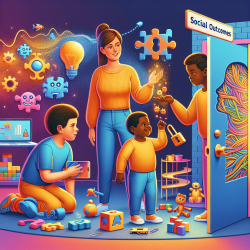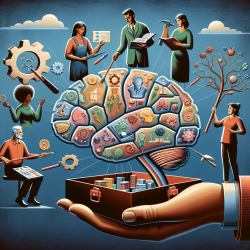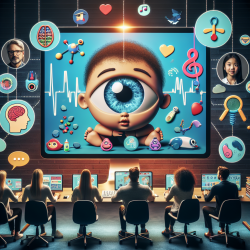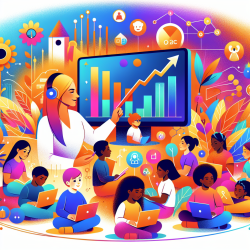Enhancing Social Interactions in Children with Autism: Insights from Neuroscience
In the quest to improve social outcomes for children with autism, understanding the neural mechanisms behind social interactions is crucial. A recent study titled "Social-interactive reward elicits similar neural response in autism and typical development and predicts future social experiences" offers valuable insights that can guide practitioners in their approach to therapy.
Key Findings from the Research
The study utilized a social-interactive fMRI task to investigate how children with autism and those with typical development process social rewards. Interestingly, the findings revealed minimal differences between the two groups in their neural and behavioral responses to social-interactive rewards. This suggests that children with autism may have more in common with their typically developing peers in terms of social reward processing than previously thought.
Furthermore, the study found that variations in neural responses were linked to self-reported enjoyment of social tasks. Importantly, the neural sensitivity to social-interactive rewards was a predictor of future enjoyment in face-to-face interactions with new peers. These insights highlight the potential for using neural responses as a marker for predicting social interaction success.
Implications for Practitioners
For practitioners working with children on the autism spectrum, these findings emphasize the importance of creating engaging, interactive social contexts in therapy. Here are some practical steps to consider:
- Emphasize Real-World Social Interactions: Incorporate activities that mimic real-life social interactions to better engage children and elicit natural responses.
- Focus on Individual Enjoyment: Tailor social tasks to the interests of the child to enhance their enjoyment and engagement, which can improve neural responses to social rewards.
- Monitor Neural and Behavioral Responses: Use assessments to track changes in neural sensitivity and behavioral enjoyment of social tasks, which can inform therapy adjustments.
Encouraging Further Research
The study underscores the need for further research into the neural mechanisms of social reward processing in autism. Understanding individual differences in social motivation and neural responses can lead to more personalized and effective interventions.
Practitioners are encouraged to stay informed about the latest research developments and consider collaborating with researchers to explore new therapeutic approaches based on neural and behavioral insights.
To read the original research paper, please follow this link: Social-interactive reward elicits similar neural response in autism and typical development and predicts future social experiences.










